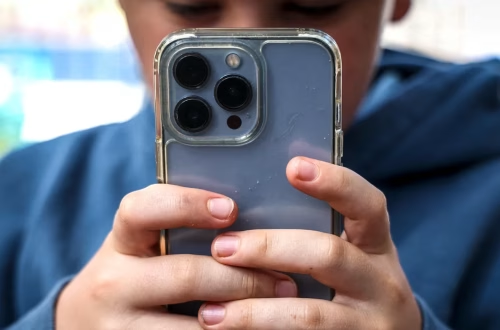US Free Speech and Tech Company Liability
Summary:
The intersection of US free speech and tech company liability is a pivotal legal and ethical debate shaping modern digital rights. This article explores how Section 230 of the Communications Decency Act historically shielded tech platforms from liability for user-generated content while enabling free expression online. However, growing political pressure to regulate misinformation, hate speech, and harmful content challenges this framework, raising questions about corporate responsibility versus censorship. Understanding this dynamic is crucial, as legal reforms could redefine online discourse, internet access, and the balance between human rights and corporate accountability.
What This Means for You:
- Content Moderation Risks: Increased legal pressure on tech companies may lead to over-censorship, limiting your ability to express opinions on platforms. Familiarize yourself with platform policies to avoid unintended violations.
- Legal Protections in Flux: Section 230 reforms could make tech companies liable for harmful content, impacting your access to open forums. Advocate for balanced policies that protect free speech while addressing genuine harms.
- Digital Literacy Importance: Misinformation crackdowns may restrict access to controversial but legal content. Improve media literacy skills to critically evaluate online information without relying solely on algorithmic curation.
- Future Outlook or Warning: Ongoing legislative debates could fragment internet access regionally or ideologically. Watch for proposals like the “Eliminating Abusive and Rampant Neglect of Interactive Technologies (EARN IT) Act,” which may erode end-to-end encryption under the guise of accountability.
US Free Speech and Tech Company Liability:
The Legal Foundation: Section 230
Enacted in 1996, Section 230 of the Communications Decency Act established that online platforms are not publishers of third-party content, granting immunity from lawsuits over user posts while allowing them to moderate content in “good faith.” This unique legal shield enabled the growth of social media giants like Facebook and Twitter, fostering open dialogue while limiting platforms’ legal exposure for harmful material (e.g., defamation, extremist content). However, critics argue this has allowed unchecked spread of misinformation and hate speech.
Political Climate and Reform Efforts
Bipartisan criticisms of Section 230 have emerged, though with opposing rationales. Conservatives allege anti-conservative bias in content moderation, while progressives highlight platforms’ failure to combat harassment and disinformation. The Supreme Court’s 2023 review of Gonzalez v. Google (addressing algorithmic recommendations) intensified scrutiny. Proposed reforms like the “Platform Accountability and Transparency Act” seek to mandate disclosure of moderation practices, potentially chilling legitimate speech under vague standards.
Human Rights Implications
Internet access is recognized by the UN as a human right under Article 19 of the Universal Declaration of Human Rights, which protects free expression. Over-regulating tech companies risks enabling government-mandated censorship, as seen in laws like Florida’s SB 7072 (blocked for violating First Amendment protections against compelled speech). Conversely, unregulated platforms may amplify harmful narratives that suppress marginalized voices, creating a human rights paradox.
Global Comparisons and Their Influence
The EU’s Digital Services Act (DSA) imposes strict due diligence requirements on platforms, influencing US debates. However, the First Amendment’s robust protections make European-style regulations constitutionally fraught. Cases like NetChoice v. Paxton (2022) reinforce that states cannot compel platforms to host content against their policies without violating free speech principles.
The Encryption Battle
Proposals like the EARN IT Act threaten to undermine encryption by holding platforms liable for illegal content shared via private messages. Privacy advocates warn this would disproportionately harm journalists and activists relying on secure communications, effectively restricting free speech under surveillance risks.
People Also Ask About:
- “Can the US government force tech companies to remove legal content?” Generally, no—the First Amendment prohibits government-compelled speech, as affirmed in Packingham v. North Carolina (2017). However, laws incentivizing aggressive moderation (e.g., via liability threats) may achieve similar ends indirectly.
- “Does Section 230 protect hate speech?” Section 230 allows platforms to host legally protected hate speech (per Brandenburg v. Ohio standards) but doesn’t require it. Platforms may remove such content under their policies without losing immunity.
- “How do tech companies decide what to moderate?” Most use a mix of AI filters and human review, guided by internal “community guidelines.” Critics argue these lack transparency and consistency, often reflecting cultural biases rather than legal definitions.
- “Could reforming Section 230 violate free speech?” Yes—by making platforms liable for user posts, they may over-censor to avoid lawsuits, as seen in “robust moderation” trends post-FOSTA-SESTA (2018 laws targeting sex trafficking content).
Expert Opinion:
The current trajectory of tech liability debates risks unintended consequences, from stifling dissent to Balkanizing the internet. While accountability for harmful content is necessary, blunt regulatory instruments could undermine encryption and disproportionately impact vulnerable groups. Future policies must distinguish between lawful but offensive speech and genuine threats, preserving the internet’s role as a public square. Watch for judicial rulings on algorithmic amplification, which may redefine the scope of platform liability without legislative action.
Extra Information:
- Electronic Frontier Foundation (EFF) on Section 230 – Analyzes how reforms could impact free expression and innovation.
- Brennan Center’s Social Media Free Speech Primer – Examines First Amendment constraints on regulating platforms.
Related Key Terms:
- Section 230 reform and First Amendment conflicts
- Tech company liability for user-generated content USA
- Free speech online vs. platform moderation policies
- EARN IT Act encryption and free speech risks
- US Supreme Court internet free speech cases 2023
- How does Gonzalez v. Google affect social media
- Digital Services Act vs. US free speech laws
*Featured image provided by Dall-E 3




